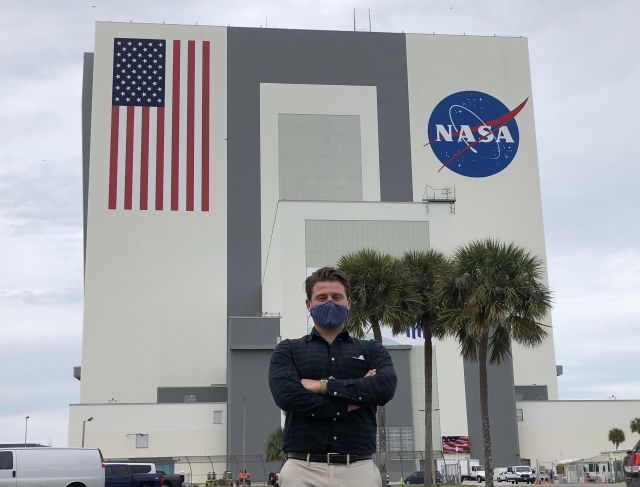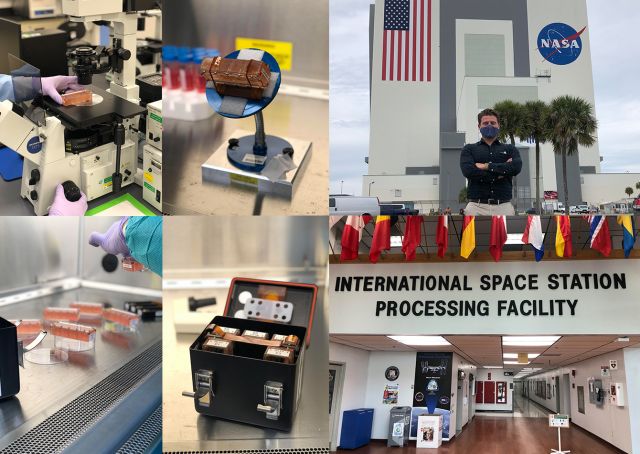Locked, Loaded, and Launched!
SpaceX Falcon rocket carried the Cardinal Heart experiment to the Space Station.

Locked, Loaded, and Launched!
Congratulations to Professor Beth Pruitt's lab group and collaborators for the successful launch of the SpaceX Falcon rocket on Sunday, December 6, 2020, at 10:17am (Central Time) that carried their Cardinal Heart research experiment to the Space Station that docked on Monday, December 7, 2020 at 12:40pm (Central Time).
Orlando Chirikian, grad student in the Dept. of Mechanical Engineering and in the Pruitt lab represented Professor Beth Pruitt's lab at NASA's Kennedy Space Center in Florida where the 21st SpaceX Cargo Mission launched for the international Space Station on Sunday, December 6th. The SpaceX cargo carried multiple payloads of scientific research of which one of them was Cardinal Heart (Effects of Microgravity on Drug Responses Using Engineered Heart Tissues). The Cardinal Heart collaborators include Bioserve, Stanford, and UCSB.
The effect of microgravity on the human heart induce molecular and morphological abnormalities in cells 3D Cells on a chip will be examined on how it responds to microgravity how changes in gravity affect cardiovascular cells at the cellular and tissue level using engineered heart tissues. It could help identify new treatments and understanding of heart problems. The effects of microgravity on the human heart induce molecular and morphological abnormalities in cells and tissues that parallel those seen in diseases related to aging and weakening of the heart muscles as a result of mutational defect or prolonged use of heart-assisting devices.
This experiment has important space and earth applications that could help to identify early changes in cardiac tissue on space missions that may trigger long-term harmful effects. What researches learn may contribute to discovery of novel therapeutic targets for clinical application.
